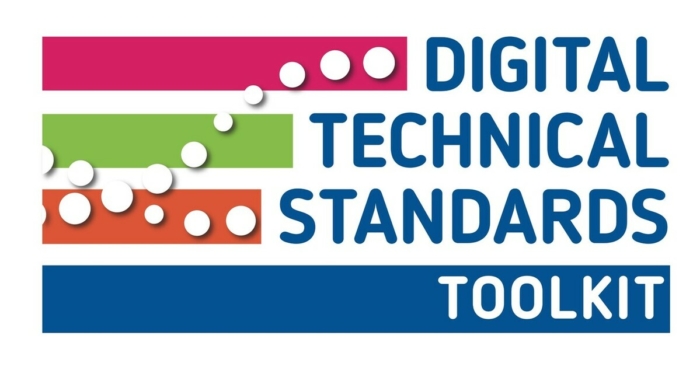Background
The Office for Students (OfS) has launched a consultation on the future of the Teaching Excellence Framework (TEF), with a deadline for responses of 11 December 2025. The EPC EES Committee proposes a full membership consultation. Further details are below and responses are invited from EPC members by Monday 3rd November.
The 2025 TEF consultation provides an opportunity for EPC to reiterate longstanding concerns about the validity, fairness, and impact of TEF and continue to push for much needed discipline-sensitive reform. In short, the TEF doesn’t reflect the nature of engineering education and professional accreditation, the complexity of apprenticeships (and HTQs), and the need for alignment with other regulators.
The priority themes for the EPC to highlight in response to the current consultation are highlighted in the thematic EPC policy statement (below) each with an opportunity for EPC members to respond.
Introduction to the TEF review
The latest TEF proposals mark a significant reshaping of the framework, aligning it more closely with OfS regulation conditions and shifting its emphasis from enhancement to compliance. Key proposals include integrating TEF with OfS quality assessments, embedding equality of opportunity considerations and linking TEF ratings more directly to incentives and regulatory action.
Highlights of the proposals
- The OfS proposes an integrated and re-shaped TEF that combines its existing assessment activity with TEF; every registered higher-education provider will be assessed for quality and outcomes.
- This, essentially, transforms the TEF into a compulsory public B conditions
- OfS would continue to publish provider-level ratings – to give students clearer information and apply stronger incentives for performance.
- Equality of opportunity is explicitly embedded to ensure students from all backgrounds can access high-quality education and positive outcomes.
- The revised TEF would be cyclical, with assessment frequency tied to rating and an ongoing risk-monitoring High-performing providers will face less frequent assessment; those at risk face more scrutiny.
- The initial cycle focuses on undergraduate provision; postgraduate-taught assessments are planned for later cycles.
- The OfS is also considering streamlining how student outcomes are assessed using available data and have proposed removing the progression indicator from Condition B3.
- The proposals mark a shift of TEF from being about enhancement to being more about regulatory compliance. The focus for lower-performing providers (Bronze, Requires Improvement) becomes sharper.
- The regulator signals stronger incentives / consequences: published ratings will be linked to incentives, and OfS may intervene where providers fall below minimum quality requirements. (Sector coverage clearly links these reforms to financial consequences for poorly performing providers.)
EPC TEF 2025 policy statement
By reframing TEF as a public announcement of the regulator’s B condition performance, the OfS is presenting an entirely different proposition to the existing framework. TEF becomes more conceptually confused, where it both conflates student outcomes with teaching quality and teaching excellence with regulatory compliance. It is difficult to see where teaching excellence is fostered in the proposed exercise.
The Teaching Excellence Framework should be developed as an enhancement-oriented exercise, grounded in evidence of learning gain and authentic teaching quality, not proxy metrics.
The extension of the TEF to all providers will spell greater pressure to streamline the process — that might disadvantage nuanced programmes. It is critical to Engineering that programmes are diverse in mission, size, length, etc, and our work for The Royal Academy of Engineering’s Engineers 2030 shows great innovation in engineering. Under the proposed regime, the metrics do not only penalise providers who admit diverse cohorts providers, even the well-established may be less able to experiment, take pedagogic risk, or invest in innovation if penalties loom. With European engineering education already perceived to be ahead, this is threat to engineering education.
Foreseeable unintended consequences of the proposed approach include:
- Misguided applicant / student perceptions of individual course quality, especially internationally.
- The incentivisation of selectivity of inputs and applicant “creaming”.
- Cliff edge funding boundaries in a spectrum context.
- Hidden and at-risk pockets of excellence.
- Provider-driven reductions in courses where the cost to outcomes ratio is not favourable. This could include strategically important subjects such as engineering.
- A drive for homogeneity which stifles innovation.
- An English approach misaligned with UK and international standards of excellence.
Rewarding those providers who achieve excellence with the resources they already have while penalising those who are struggling with intake or resource issues appears to be misguided efficiency of public funds (or an excuse to give money to already wealthy universities). If provider ratings become the primary lever for funding/fees, institutions will game for metrics at the expense of strategically important provision (e.g., high-cost lab work, outreach, widening participation).
We caution against incentives that drive providers to reduce high-cost, high-impact teaching (e.g., labs, placements) or marginalise widening-participation activity that has long-run societal benefits.
The OfS must also ensure that metrics do not penalise providers who admit diverse cohorts or women into engineering.
Engineering HE is systematically underfunded, and departments are commonly transitional state to manage; we anticipate that they may feel more regulatory pressure rather than encouragement. Many providers and departments are undergoing major restructuring, including mergers, owing to the financial collapse of the sector. Unless the under-resourcing of high-cost courses is resolved, the TEF will drive perverse incentives to chase the courses that perform best in the metrics or search for the best trade-off between metric outcomes and low cost.
The EPC has consistently called for more subject sensitivity in the TEF, not broad provider-level banding. Provider-level metrics risk masking excellent subject pockets that are crucial to professional engineering supply. The TEF framework requires more subject nuance and discipline benchmarking.
Engineering degrees are commonly accredited by Professional Engineering Institutions (PEIs) under the auspices of the Engineering Council, where “outcomes”, or skill levels, are defined externally. Professional accreditation the recognised measure of excellence in engineering and needs to be properly recognised in the TEF.
Engineering programmes are tightly coupled to internationally recognised professional standards, industrial relevance, hands-on learning, laboratories, placement years, and competency frameworks that are not captured by institution-level metrics or generic student surveys.
Considering this in judging outcomes (e.g. how many graduates are in roles that match engineering competence vs just “employed”) is more meaningful than broad outcome measures. It is extremely problematic that the TEF proposals do not integrate or align with professional accreditation.
The OfS should ensure the revised TEF permits subject-sensitive assessment and narrative evidence that recognises professionally accredited modes of delivery and practice-based outcomes. For example, “exceptional case statements” could allow engineering departments to explain context (e.g., high cost of labs, cohort heterogeneity, long placement leads).
The EPC supports disaggregating HTQ and degree-apprenticeship outcomes from standard degree outcomes. Many engineering providers deliver diverse L4/L5 provision and degree apprenticeships whose outcomes differ from full-time degrees so we should expect that, at minimum, OfS apply separate indicators so engineering providers are not penalised for delivering important technical routes.
We are deeply concerned that the OfS has not considered or assessed the impact of the inclusion of integrated master’s (which blur UG/PGT boundaries) and are a staple of “undergraduate” engineering provision across the UK. There seems to be no discussion in the proposals or sector on how 4- or 5-year integrated programmes should be treated under the 2025 design.
A B3 conditions heuristic should not be confused with a TEF, by name or application. OfS should avoid reductive medal ratings which are only tentatively linked to teaching excellence through proxy measures. The further away from the “teaching excellence” exercise the measures used are, the more likely undesirable consequences and gaming, particularly when perverse financial incentives are introduced.
A metrics reform is urgently needed. OfS should move away from blunt proxies and adopt robust, discipline-relevant indicators and contextual narratives.
In particular, TEF risks misrepresenting engineering teaching context. Metrics must accurately represent learning and employability outcomes (and be robust to small cohorts and dilution by vocational HTQs/apprenticeships). The TEF metrics do not fully capture learning quality, skills development, professional readiness, and student experience. We would also welcome research into how student views change once they have entered the workplace.
Any outcome indicators used in TEF must control for factors such as student entry qualifications, sociodemographic background, mode, course length and industrial placement years. Entry tariff or prior attainment could be as control variables allowing for the inclusion of “value-added” or progress metrics.
Qualitative evidence (industry engagement, placement quality, capstone projects, professional skills development) is essential in engineering and will require engineering experts (engineering academics or industry) on TEF panels when assessing engineering programmes.
The TEF should review the quantitative metrics and support these with evidence of authentic student experience: placement quality, employer assessment of graduate competence, and evidence of student development on professional skills.
Allowing for a balanced weight for narrative submissions (case studies, employer validation, student reflections) is necessary in engineering education, where project-based learning, capstone and group work are core.
We are also concerned about disproportionate burden on smaller, newer, or specialist providers, particularly those without mature data infrastructure or internal capacity to prepare submissions. Some may lack established TEF experience or may only offer niche programmes.
Small/specialist engineering departments may lack large central teams to compile submissions. Engineering often has small cohort subjects [data] where cohorts are small or heterogeneous (e.g., specialist MSc, sandwich cohorts) and contextualisation is needed.
Engineering tends to have higher cost teaching elements (labs, workshops, equipment), project work, placements, field trips. These may lead to higher variation and occasional disruptions (equipment failure, lab closure, etc.). Without narrative or qualitative explanation, outcome metrics may penalise such disruption unfairly.




